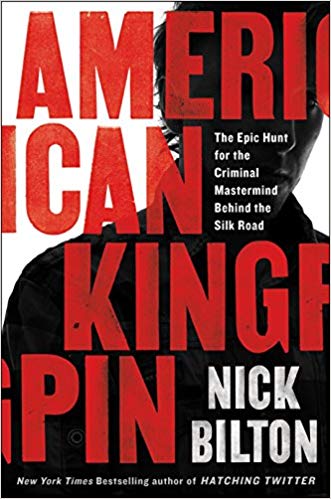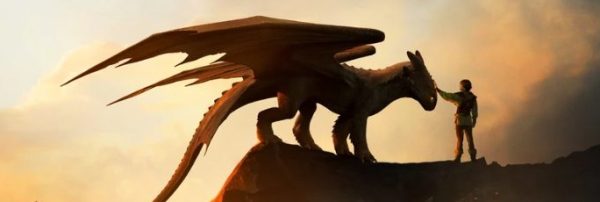Westlake student dives into “American Kingpin” following the story of alumnus Ross Ulbricht

American Kingpin is a book written by Nick Bilton about a man named Ross Ulbricht, also known as Dread Pirate Roberts (yes, like in The Princess Bride), the mastermind behind the Silk Road. The Silk Road was a website operated on a program called Tor, which allowed users to remain anonymous while buying items, selling items or even just talking to one another. The site, as well as other black markets, was one of the first major users of bitcoin — a form of digital currency that has gained a lot of attention recently and, most importantly to the Dread Pirate Roberts, allows users to pay for their illegal goods anonymously.
The name Ross Ulbricht might already be familiar to some people, but it wasn’t to me. Despite that, though, I was hooked on American Kingpin before I even held it in my hands. Everything about the Silk Road and its creator were interesting to me. You can imagine how that excitement grew when I realized Ulbricht was a 2002 Westlake graduate. So, as The Featherduster was wrapping up its work on the 50 Years of Westlake issue, I was turning my attention to the life of a different graduate — one that now is living at the United States Penitentiary in Arizona after founding what’s been called “the Amazon for Drugs.”
Now, before I talk about the book, I want to clarify that it is non-fiction. If someone wanted to, they could probably piece the important bits together from news articles, and obviously a major part of the story — the eventual capture and imprisonment of Dread Pirate Roberts — is one that is well-known (otherwise we wouldn’t know who he was). However, it reads as if you’re reading a fiction thriller. I found it intensely compelling and suspenseful to read, and there are so many little details and twists involved in the full story, that I’d recommend reading American Kingpin even if you think you already know about the Silk Road. Because of that, I’m going to try to refrain from spoiling major parts of the book, but relatively unimportant details or ones that are fairly self-explanatory have been left in.
American Kingpin was released in May 2017 and details Ross Ulbricht’s story as he’s on his quest to change the world: He’s very strongly libertarian and believed that it wasn’t the government’s place to determine what people put in their body, and therefore all drugs should be legalized. His goal in starting the Silk Road was that one day, when drugs were legalized, he would be viewed as a hero.
Bilton, the author, is both a journalist and an novelist. He goes into detail at the end of the book about the tremendous amount of research he did, including finding old conversations from Dread Pirate Roberts and his employees, reading Ulbricht’s digital diary and working with a researcher named Nicole Blank to trace back anything online that Ulbricht had touched in the past years. Although he didn’t interview Ulbricht directly, he followed both Ulbricht’s life and the digital life of Dread Pirate Roberts in order to write a narrative nonfiction story. So while the story obviously isn’t necessarily completely factual — how could it be — I trust his credibility.
American Kingpin is told through an omniscient third-person narrator. For those of you who aren’t major English nerds, that basically means that the characters themselves aren’t telling the story, but the narrator knows their thoughts. The book is largely told from Ulbricht’s point of view, although it does have some chapters from others. One of my favorite qualities of the book was how Bilton used Ulbricht’s voice in subtle ways through the chapters. So, rather than just hearing an outsider’s account of what was going on and getting their opinions, you’re able to really understand Ulbricht’s thoughts and why he does what he does.
The other characters who the book highlights are four men in the government who are trying to find out who Dread Pirate Roberts is. There are so many moments in their stories that, if they had done something even slightly different, they wouldn’t have connected that Ross Ulbricht was Dread Pirate Roberts; there were also many moments where I was verbally trying to will them to do something different. The only thing I didn’t like about the chapter organization was that, especially at the beginning of the book, I kept losing track of who was talking and who they were. Eventually each person’s path started to diverge from the others more, and that stopped being an issue.
Regarding Ulbricht’s current situation, he is serving a double life sentence plus an additional 40 years. There’s a campaign and website which call for his release. I looked it up (although I am mildly concerned that I’m now on some watch list), and it’s jam-packed with information. They say that Ulbricht was a “peace-loving and compassionate” person who has always demonstrated his “kind, generous, caring nature.” Which, you know, isn’t totally wrong. There’s not a doubt in my mind that he was kind, generous and caring to those he knew in the real world. I don’t even doubt that he was kind, generous and caring to those he communicated with via the Silk Road. It’s fascinating to me how, when he went to trial, everyone he knew doubted it was him. No one could believe that kind, generous and caring Ross was the one who was worth $20 million in bitcoin, ordered the death of at least one person and secretly ran the “Amazon for drugs” for four years.
American Kingpin gave insight into Ulbricht’s life during his time operating the Silk Road, but it didn’t give much insight into his high school life, so I wanted to find information on the high school version of Ross Ulbricht. Digging through past yearbooks, I found the usual: quotes, cheesy photos, club pictures. In doing so, I discovered that he was on The Featherduster staff back in 2000. And to me, as one of the editors-in-chief of the same publication, that’s crazy. Here we are, talking about how Westlake has been around 50 years and casually throwing the name “Ross Ulbricht” — our most infamous alumnus — around when we’re one of the organizations that has a connection to him.
The story of the ’02 Westlake graduate who went on to become worth millions of dollars through facilitating the selling of drugs, illegal weaponry and even human organs is one that definitely needs to be experienced to get the full understanding.
Westlake has seen some amazing graduates: state representatives, star football players, international public speakers and so many more. But the story of Ross Ulbricht — the ’02 Westlake graduate who went on to become worth millions of dollars under the name Dread Pirate Roberts through creating a massive site on the deep web that sold drugs, illegal weapons and even human organs — is probably the most unique. I would recommend American Kingpin to everyone who enjoys thrilling and suspenseful books, but I would also recommend it to any Westlake student who wants to take a dive into the world of our most infamous alumnus.





